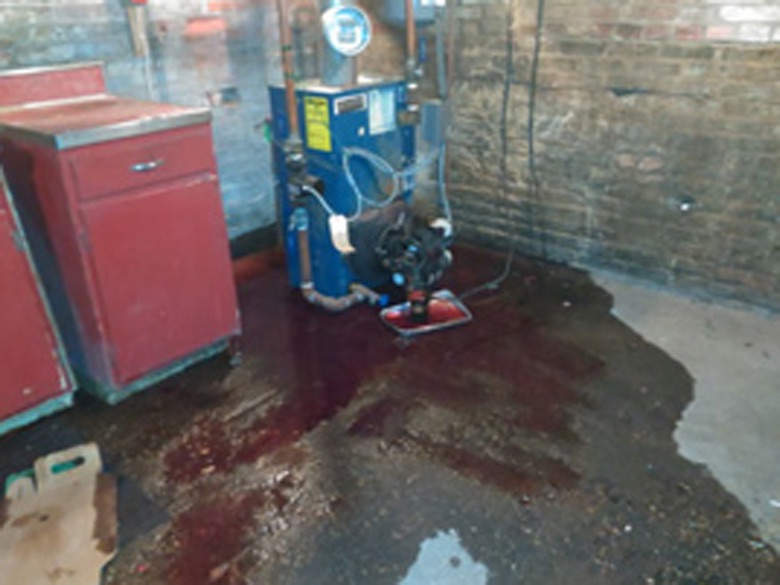
Did you know most heating oil spills happen during the fall, right after the first oil tank refill? From delivery technicians unfamiliar with your tank to leaking connections and storage tanks, many people who rely on heating oil have their fingers crossed that the first fill-up goes as expected, without a hitch.
What happens if the unthinkable occurs, and you have an oil leak? Let’s take a look.
Spotting a Heating Oil Spill
Sometimes an oil leak can be very subtle, such as through a pinhole in the feed hoses or tank. Other times, very obvious signs like puddling seem to come out of nowhere. Oil tanks don’t just spontaneously leak, however; if you’re finding larger puddles of oil, chances are your tank has been failing for quite some time.
Some tell-tale signs that you have a problem with your outdoor heating oil tank can include:
- Dead grass under or around the tank
- Stains on grass or concrete under the tank
- Wet spots or rust on the storage tank
- Odor of oil around the tank
- Drips from connections or seams
Leaking and oil spills from your indoor tank may be easier to spot. Some signs of problems with your indoor tank may be:
- Obvious puddles of thick reddish fluid
- An unmistakable odor that lingers days after the tank is filled
- Malfunctioning gauges
- Dripping fluids from seams and connections
- Increased oil consumption
Steps to Take If You’ve Identified a Problem
Stopping the oil leak isn’t enough to control the damage. The spilled oil will continue to seep into the ground or drain into cracks in the floor, and even contaminate the walls and anything porous that it touches.
If you’ve spotted an oil spill, act quickly.
- Turn off pilot lights and any potential source of ignition
- Try to identify the source of the spill, and shut off fuel lines immediately
- Open the windows and place fans to increase ventilation
- Keep everyone, including pets, away from the spill
- Place absorbent material, cat litter, or sawdust in and around the puddle
- Follow your local guidelines on reporting the spill to proper authorities
Calling a professional oil spill cleanup contractor like ACE Environmental will make the whole process easier, regardless of the size of the spill.
How Dangerous is Exposure to a Heating Oil Spill?
Heating oil spills are more than just disruptive and unpleasant; prolonged exposure to the fumes can cause health problems.
Short-term health effects can include dizziness, lack of mental focus, nausea, headaches, and exacerbation of existing medical conditions such as respiratory diseases or high blood pressure.
Long-term exposure to these fumes usually happens because a leak was not detected. It can cause damage to the liver or kidneys, a decrease in the ability to taste or smell, and other serious conditions.
Oil Leaks Are Not Usually Covered by Homeowner’s Insurance
With the costs of oil cleanup for the average underground tank ranging from $10,000 to $130,000 depending on the size of the spill and the actions needed to remediate it, most homeowners are shocked to find themselves on the hook for the bill. Their insurance won’t cover oil spills, but many will have add-on clauses to cover these unexpected expenses. Make sure you read the fine print of your policy so you’re not unpleasantly surprised.
ACE Environmental is On Call 24/7 for Your Heating Oil Spill Emergencies
Your oil spill will probably not happen from 9am to 5pm. Chances are, you’ll discover it after hours or first thing in the morning. ACE is prepared 24/7 to help you evaluate, monitor, and clean up your oil spills, no matter how big or small.
Prevention is everything when it comes to oil spills. Let an ACE technician inspect your oil tank before you fill it to make sure everything is functioning properly.
